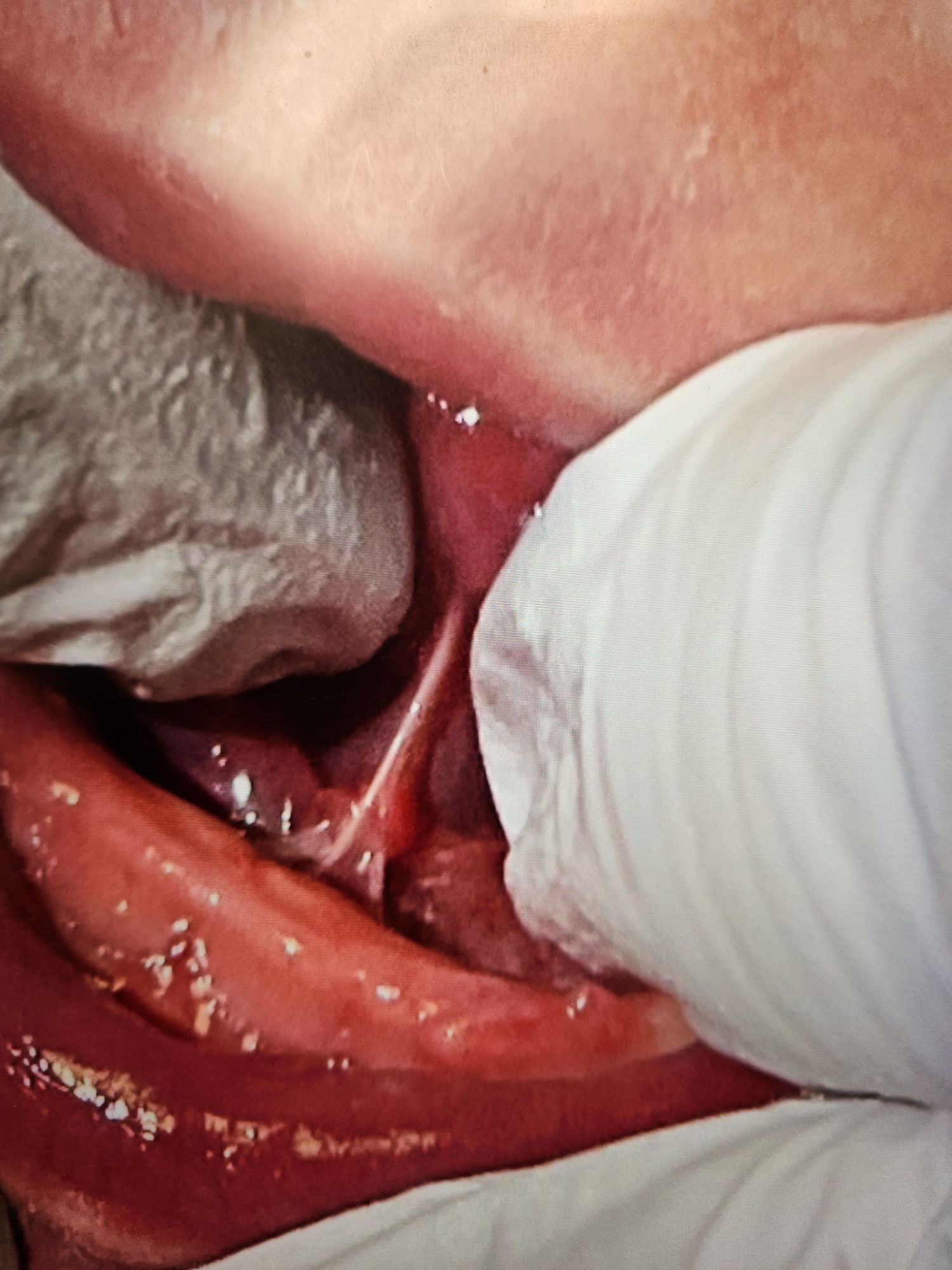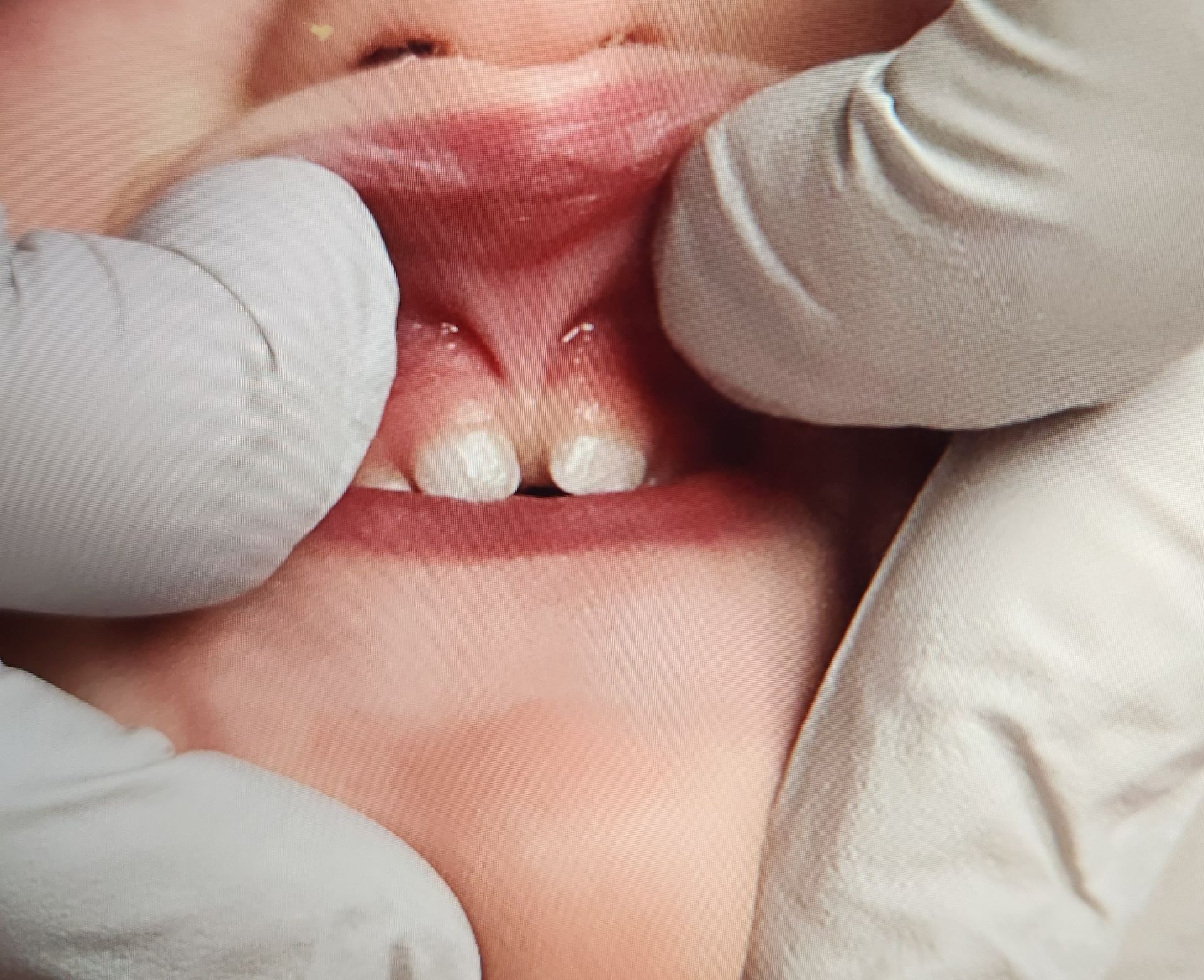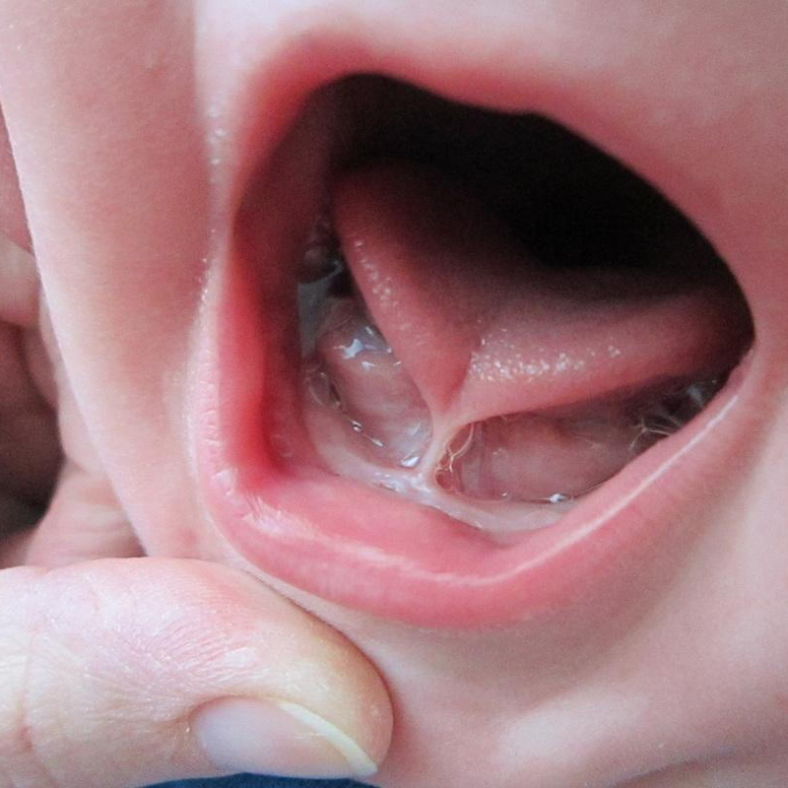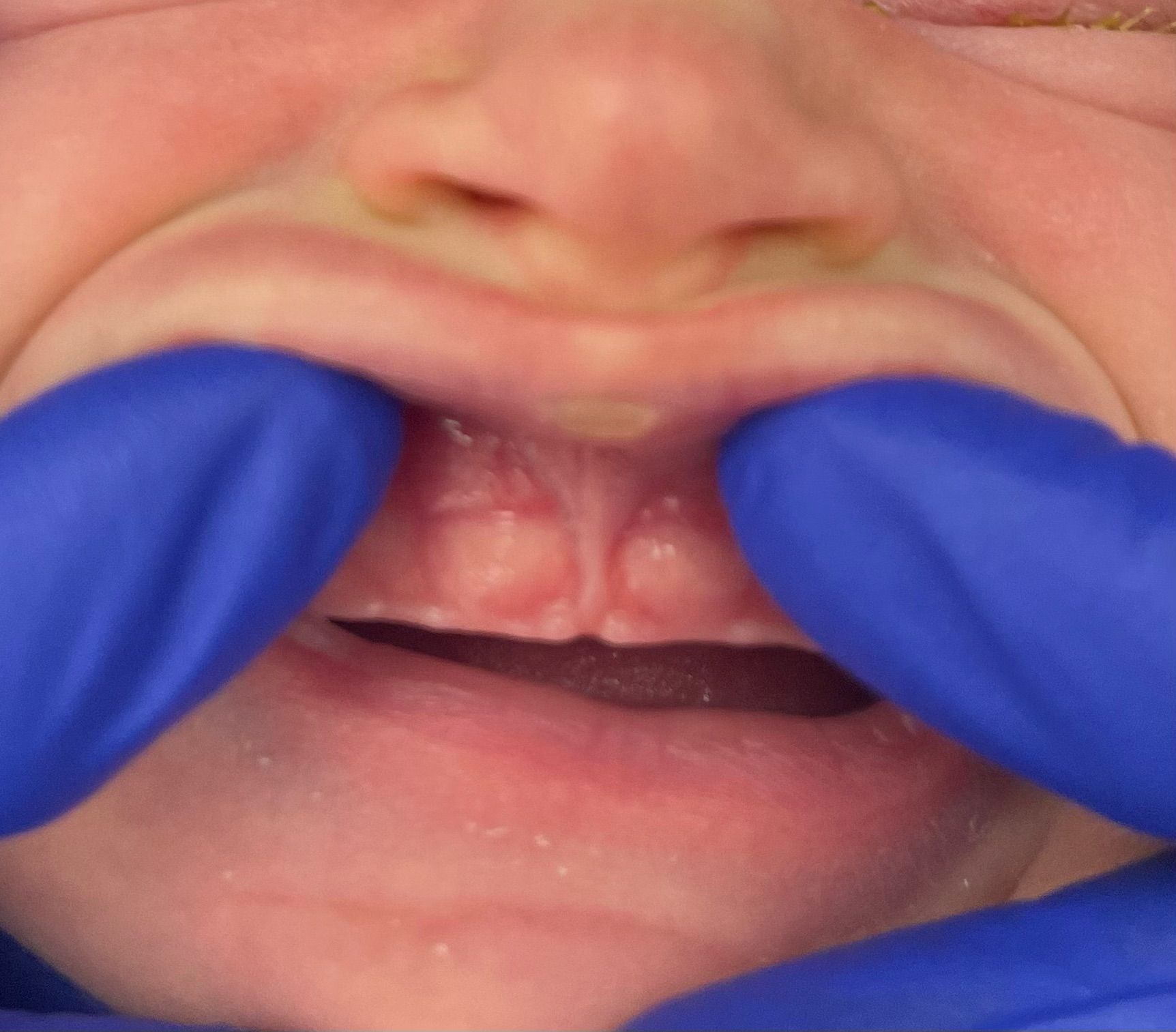Infant Tongue Tie Assessment
What is a Tongue or Lip Tie?
A tongue or lip tie is a congenital condition where the strip of skin under the baby's tongue (known as the lingual frenulum) or the strip of skin connecting the upper lip to the upper gum (labial frenulum) is shorter than usual. This condition restricts the movement of the tongue or lip, which can lead to challenges in breastfeeding for infants and speech issues as the child grows.
In the case of a tongue tie, the limited range of motion may prevent the baby from latching onto the breast effectively, which can result in poor weight gain and frustration for both mother and baby. Mothers may also experience nipple pain, mastitis, or reduced milk supply due to inefficient nursing. Lip ties can have similar effects, limiting the baby's ability to create a good seal around the nipple.
An assessment typically involves evaluating the baby's tongue and lip movements during breast or bottle feeding, as well as the mother's comfort.
Various grades of tongue and lip ties exist, ranging from mild to severe, based on how much the frenulum restricts movement.
Treatment includes a variety of options, such as therapy or a minor surgical procedure which frees the restricted frenulum.







